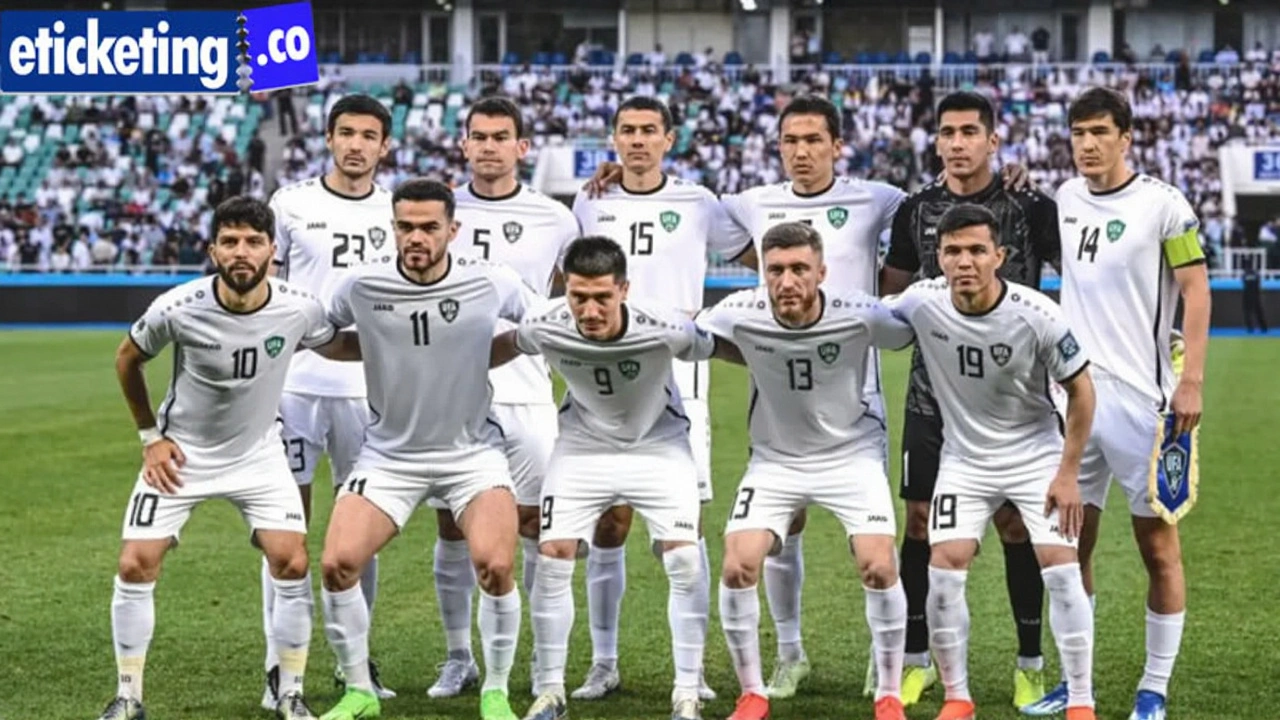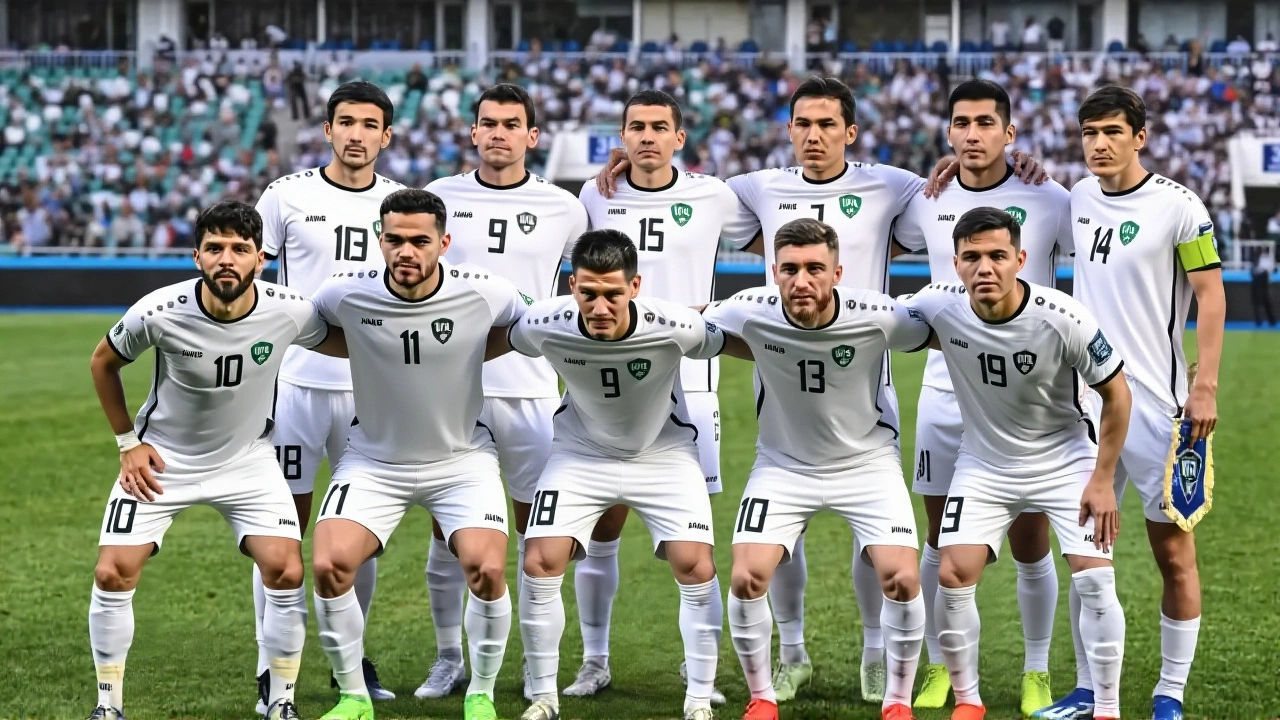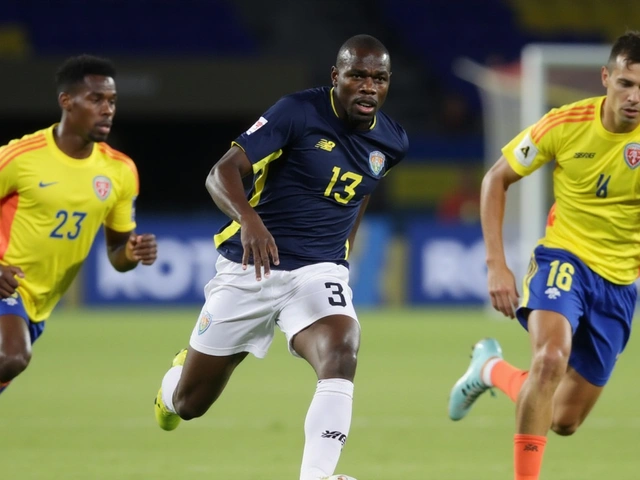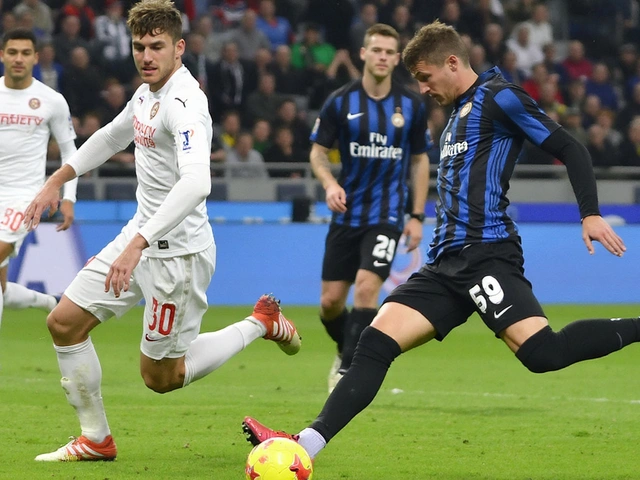When Fabio Cannavaro, head coach of the Uzbekistan Football Association stepped in on 6 October 2025, the White Wolves unveiled a 27‑man roster ahead of a two‑match international window. The squad’s composition, the outcomes in Tashkent and Malaysia, and the looming 2026 FIFA World Cup all intersected in a weekend that felt like a dress rehearsal for history.
Background: From qualification triumph to a new era
Uzbekistan secured its first ever World Cup berth in June 2025 under former captain‑turned‑coach Timur Kapadze. The campaign, initially overseen by Srečko Katanec, stalled when the Slovenian fell ill, prompting Kapadze’s interim promotion. By the time the Confederation of Asian Football announced the qualification, Uzbekistan had rattled off a string of 11 unbeaten games – seven wins and four draws – after a 3‑2 setback to Qatar in November 2024.
That momentum carried into the October window, but a change at the helm meant a fresh tactical direction. Cannavaro, the 2006 World Cup champion and former Italy defender, inherited a side hungry for validation on the global stage.
Squad snapshot: Who’s in, who’s out
The 27‑player list blended home‑grown talents with overseas experience. In goal, Abduvokhid Nematov of Nasaf and Botirali Ergashev (also Nasaf) shared the gloves. The back line featured Rustam Ashurmatov, plying his trade with Iran’s Esteghlal, alongside domestic stalwarts Sherzod Nasrullaev (Nasaf), Farrukh Saifiev (Neftchi), Muhammadkadir Hamraliev (Pakhtakor) and Hojiakbar Alijonov. Mid‑field depth was hit by the injury to Abbos Fayzullayev, who missed the Uruguay clash.
Up front, the likes of Ruslanbek Jiyanov earned a spot after strong performances for Pakhtakor, while veteran striker Khojimat Erkinov anchored the attack.
Key facts
- Coach: Fabio Cannavaro (appointed 6 Oct 2025)
- Venue vs Kuwait: Uzbekistan Football Federation Stadium, Tashkent
- Venue vs Uruguay: Hang Jebat Stadium, Kuala Lumpur, Malaysia
- World Cup outlook: preparing for Group E in the 2026 tournament
- Recent form: 11‑match unbeaten run (7W‑4D)
Matchday 1 – Kuwait 0‑2 Uzbekistan
On 9 October, Cannavaro’s side debuted with a 2‑0 victory over Kuwait in front of a raucous Tashkent crowd. Early pressure paid off when Shakhzod Ergashev curled a freekick beyond the Kuwaiti keeper in the 23rd minute. A swift counter‑attack three minutes later saw Jiyanov tap in from close range, sealing the win.
The clean sheet marked Uzbekistan’s third consecutive shutout and extended their unbeaten streak to four matches. Fans hailed the tactical shift – a tighter defensive block paired with rapid transitions – as a promising signature of Cannavaro’s philosophy.

Matchday 2 – Uruguay 2‑1 Uzbekistan
The second friendly, staged on 13 October at Hang Jebat Stadium, presented a sterner test. Uruguay arrived under the stewardship of Marcelo Bielsa, fresh from a successful CONMEBOL qualifying campaign (fourth place, eight points clear of the playoff spot).
The first half ended goalless, with both sides probing but failing to find a breakthrough. The deadlock snapped in the 51st minute when Facundo Torres slipped a low pass to Gonzalo Sanabria, who slotted home after a one‑two with the striker.
Sanabria doubled the lead ten minutes later, his finish leaving Uzbek keeper Nematov flat‑footed. Uzbekistan, refusing to capitulate, raised the tempo. The persistence paid off in the 82nd minute when Jiyanov capitalised on a defensive lapse, threading the ball through two Uruguayan defenders before striking low to the bottom corner.
Despite a flurry of attacks in the dying minutes, the White Wolves could not equalise. The final 1‑2 scoreline gave Uruguay a deserved win, while Uzbekistan walked away with a morale‑boosting performance against a top‑tier South American side.
Expert reactions and tactical takeaways
Local analyst Dilshodbek Saidov praised Cannavaro’s “compact defensive shape” but warned that the team still needs a reliable playmaker to link midfield and attack, especially after Fayzullayev’s injury.
Meanwhile, South American commentator Javier García noted that Uruguay’s win “demonstrated why Bielsa’s high‑press system remains lethal” and that Uzbekistan’s late goal showed “character and a glimpse of the resilience needed for the World Cup”.
What lies ahead for the White Wolves
With the World Cup draw scheduled for early December, Uzbekistan now turns its focus to refining set‑piece routines and cementing a creative hub in midfield. Cannavaro is expected to experiment with a 3‑5‑2 formation in the next training camp, allowing wing‑backs to provide width while keeping three centre‑backs to preserve defensive solidity.
Also on the agenda: a pre‑World Cup friendly against Saudi Arabia in November, which will serve as the final rehearsal before the June 2026 kickoff in North America.
Frequently Asked Questions
How does this affect Uzbekistan's World Cup preparations?
The friendlies gave Coach Cannavaro a live laboratory to test tactical tweaks and assess player fitness ahead of the 2026 tournament. A win over Kuwait restored confidence, while the narrow loss to Uruguay highlighted areas—particularly midfield creativity—that need sharpening before the World Cup.
Who scored for Uruguay in the 2‑0 victory?
Facundo Torres opened the scoring in the 51st minute, laying off to Gonzalo Sanabria, who doubled the lead ten minutes later. Both goals came from quick combination play characteristic of Bielsa’s side.
What was the exact venue for the Uruguay friendly?
The match took place at Hang Jebat Stadium in Kuala Lumpur, Malaysia, a 40,000‑seat arena that hosted several Asian qualifying fixtures earlier in the year.
Why was midfielder Abbos Fayzullayev absent?
Fayzullayev suffered a hamstring strain during the training camp, forcing the coaching staff to withdraw him ahead of the Uruguay game on 13 October. The injury sidelines him for at least three weeks, according to team medical reports.
What are the next steps for Coach Cannavaro?
Cannavaro plans to hold a tactical workshop in Tashkent next week, focusing on a more aggressive pressing style. He will also evaluate emerging talents from the Uzbek league for possible inclusion in the final World Cup roster.







Gursharn Bhatti
The arrival of a World Cup champion to a nation still carving its identity on the global stage feels less like a routine appointment and more like a chess move in a game whose pieces are hidden from the public eye. One cannot ignore the timing, coinciding with a delicate geopolitical balancing act between regional powers eager to project influence through sport. The selection of Cannavaro is not merely about his defensive pedigree; it is a signal that the Uzbek federation is aligning itself with Western football philosophy while keeping its own strategic cards close. Insights from former insiders suggest that certain corporate sponsors have been pressuring for an Italian name to attract European investors. Moreover, the choice of friendly venues-Tashkent then Kuala Lumpur-mirrors a pattern where emerging football nations seek legitimacy by hosting matches in politically neutral locations. The 2‑0 win over Kuwait serves as a statistical veneer, reinforcing the narrative of progress while the underlying data reveals that possession percentages barely exceeded 45 percent. Conversely, the narrow loss to Uruguay, though respectable, exposed a lack of creative midfield orchestration that could be traced back to the unexplained omission of a key playmaker. The injury to Abbos Fayzullayev may be more than a simple hamstring strain; some whisper that it was a preemptive move to sideline a player whose agency holds stakes in rival clubs. In the broader scheme, the upcoming 3‑5‑2 experiment hints at a desire to emulate successful European models without fully committing to the necessary tactical education. This compromise reflects a deeper tension: the federation wants instant results but lacks the infrastructure for sustained development. Observers in the region note that similar patterns have emerged in neighboring nations where foreign coaches act as conduits for hidden commercial interests. The fact that Uzbekistan secured its first World Cup berth only months ago adds a layer of urgency, as the nation seeks to translate qualification into a credible tournament performance. Yet the data from the two friendlies indicates that the defensive solidity praised by local analysts is fragile, collapsing under high‑press scenarios typical of Bielsa’s Uruguay. The strategic messaging from the federation suggests confidence, but the measurable gaps in set‑piece execution and midfield fluidity remain stark. In sum, Cannavaro’s debut is a microcosm of a larger narrative where ambition, politics, and commercial motives intertwine, leaving fans to wonder whether the White Wolves will truly howl on the world stage or merely parade in a well‑orchestrated illusion.
Arindam Roy
A decent start, but the real test is still ahead.
Parth Kaushal
The excitement in Tashkent could have ignited a city-wide celebration, if only the fans had known that the team's heartbeat was already racing against an unseen clock. Every free‑kick, every sprint down the flank was painted in the colors of hope and inevitable heartbreak. The whistle that marked the second goal seemed to echo through the streets, reverberating like a drumbeat of destiny. Yet, beneath the jubilant roar, a subtle tension lingered, as if the players sensed the eyes of a continent scrutinizing every move. When Uruguay arrived, the contrast was stark: a squad steeped in relentless pressure, a symphony of aggression that tested Uzbekistan's newly forged armor. The first half unfolded like a chess match, each side probing, each pause a breath held in anticipation. The breakthrough at the 51st minute was a thunderclap that shattered the fragile silence, while the subsequent goal painted the night in shades of inevitability. Uzbekistan's response in the 82nd minute was a blaze of defiance, a testament to a warrior spirit refusing to be silenced. The final whistle, however, reminded everyone that the journey to glory is paved with both triumphs and lessons. In the end, the saga of those two matches will linger in conversations, a narrative woven with drama, pride, and the relentless pursuit of excellence.
Namrata Verma
Oh, brilliant-another “expert analysis” that tells us the win over Kuwait was “everything,” and the loss to Uruguay “just a hiccup,” as if the complexities of international football could be summed up in a two‑sentence tweet, right???
Manish Mistry
While your hyperbole is noted, the statistical data reveal that possession against Uruguay languished below 40 %, a metric that cannot be dismissed as mere “hiccup.”
Rashid Ali
It’s amazing to see the White Wolves stepping onto bigger stages; each match offers a chance for the players to showcase the talent that’s thriving across Uzbek clubs, and the fans back home are feeling that surge of pride. The cultural exchange in Kuala Lumpur also highlights how football can bridge diverse communities, bringing us together beyond borders.
Tanvi Shrivastav
Sure, because nothing says “progress” like a couple of friendly games-lol, maybe next time they’ll remember to bring a better midfielder, ok? 😂
Ayush Sanu
The data supports your observation: Uzbekistan’s defensive record improved, yet midfield creativity remains a statistical deficiency.
Prince Naeem
In the quiet moments between matches, one discerns the deeper narrative of a nation seeking identity through sport.
Jay Fuentes
Go White Wolves! Can’t wait to see you guys roar at the World Cup! 🙌